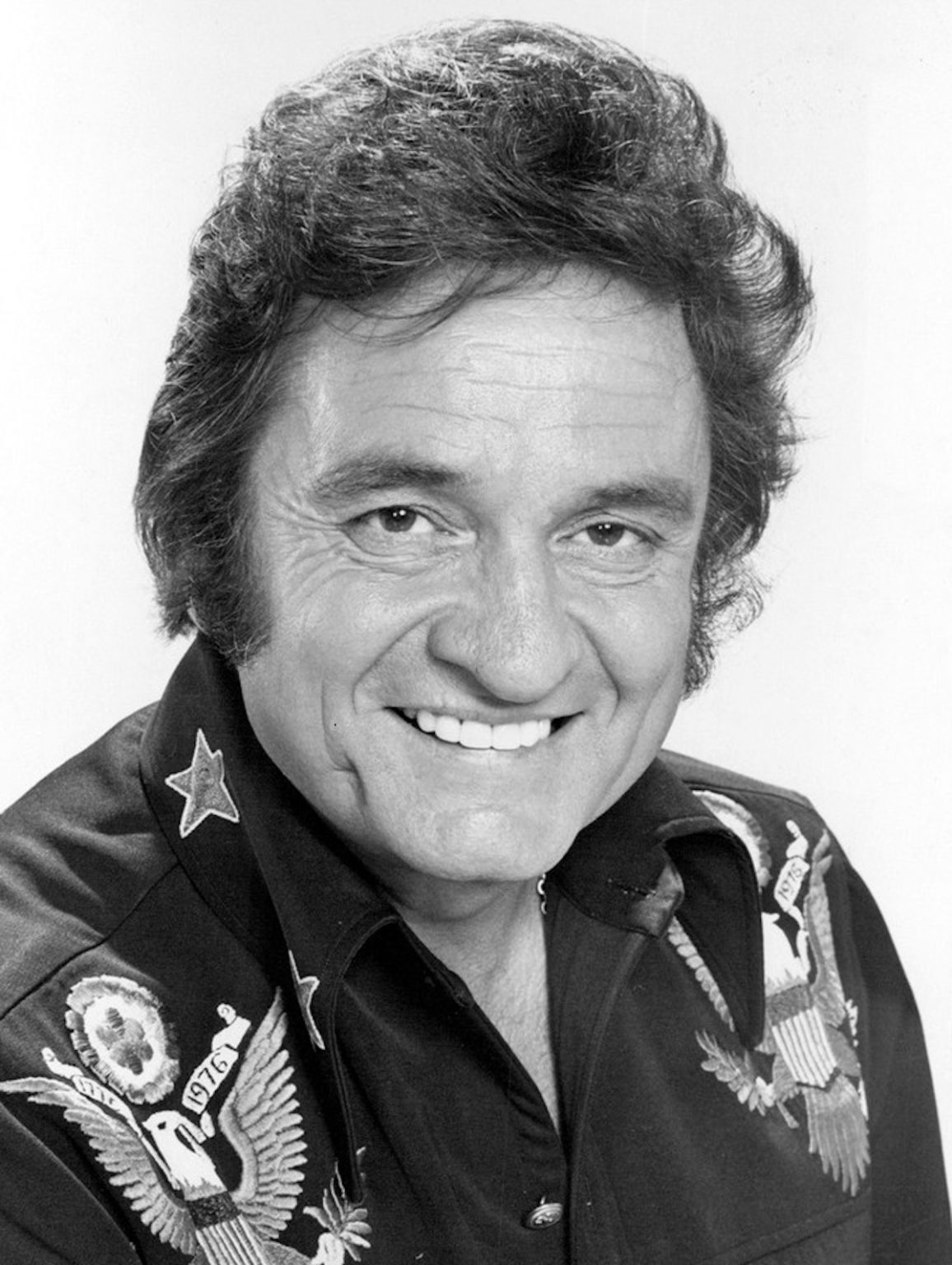“One Piece at a Time” by Johnny Cash is one of those brilliantly quirky, unforgettable songs that captures the humor and ingenuity of the American working class. Released in 1976, it quickly became a hit, reaching No. 1 on the Billboard Hot Country Singles chart. The song, written by Wayne Kemp, tells the story of a blue-collar worker’s creative plan to build his own Cadillac by stealing parts from his job at an assembly plant—one piece at a time.

In many ways, “One Piece at a Time” embodies Cash’s ability to bring humor and heart into his music. While he was known for his deep, often serious songs about life, love, and redemption, this track shows his lighter side and his gift for storytelling. The song has a folksy, almost mischievous tone, as it recounts the outlandish but oddly relatable scheme of a man determined to have something more than his paycheck will allow. It’s the kind of song that can make you smile from the first line, and by the end, you’re chuckling at the absurdity of the whole situation.
The song is set in the era of Cash’s signature Man in Black persona, yet the story in “One Piece at a Time” plays out like a comedy. The protagonist works in a General Motors plant in Detroit, assembling Cadillacs. He dreams of owning one himself but knows he’ll never be able to afford it on his salary. So, over the years, he smuggles parts out of the factory, carefully accumulating enough pieces to build his very own Cadillac—although the parts span several model years, resulting in a comically mismatched car by the end.
What makes this song so enduring is not just its humor, but the way it reflects a common fantasy for many hard-working people: the dream of having something luxurious or out of reach, and the clever ways people find to make those dreams come true. Cash’s delivery is perfect, mixing his deep, authoritative voice with a wry sense of humor. You can hear the smirk in his voice as he recounts the protagonist’s growing pride in his Frankenstein-like creation, complete with the absurd detail that some of the parts don’t quite fit together, leading to a Cadillac with a 1949 engine, 1950s headlights, and God-knows-what-else.
Musically, “One Piece at a Time” has a classic, steady country rhythm that complements its playful tone. It’s a perfect example of a story song—one of Cash’s specialties—where the lyrics take center stage, guiding the listener through a vivid narrative. The instrumentation is simple but effective, providing a solid backdrop for the tale without overshadowing the storytelling. It’s Cash’s voice and the quirky, charming story that really make this song stand out.
As humorous as the song is, there’s also a deeper undercurrent that speaks to the ingenuity and resourcefulness of working-class America. The protagonist isn’t just stealing for the sake of it—he’s cleverly navigating the limitations of his circumstances. There’s something inherently relatable about wanting a taste of the good life, even if it means bending the rules a little to get there. It’s this mix of humor, rebellion, and everyman charm that made the song resonate with so many people when it was first released, and that still makes it a favorite today.
For listeners who remember the 1970s, “One Piece at a Time” might evoke memories of a time when Cadillac represented the ultimate symbol of success and luxury. Owning one was a status symbol, something that regular folks like the song’s protagonist could only dream about. In a way, the song is also a reflection of the American dream—the idea that with enough ingenuity and hard work (or in this case, patience and creativity), you could get what you wanted, even if you had to take some unconventional routes to get there.
Johnny Cash’s ability to connect with his audience through songs like “One Piece at a Time” is part of what made him a legend. While the song may be lighthearted, it’s also a reminder of Cash’s deep connection to the working-class experience. He had a knack for taking their stories—whether serious or silly—and turning them into memorable, relatable songs that spoke directly to their lives. “One Piece at a Time” may have been a comedic departure from his more somber material, but it still carries the essence of Cash’s storytelling genius.
For older listeners, hearing this song likely brings back memories of a time when country music wasn’t afraid to have a little fun and when Johnny Cash was at the height of his powers, able to take a quirky, humorous story and turn it into a chart-topping hit. “One Piece at a Time” is more than just a novelty song—it’s a reminder of Cash’s ability to capture the imagination, humor, and heart of his audience, proving once again that he was a master of blending the light and the heavy, the funny and the profound.
To this day, “One Piece at a Time” remains one of Johnny Cash’s most beloved songs. It stands as a testament to his range as an artist and his enduring ability to tell stories that resonate with listeners from all walks of life. Whether you’re laughing at the outlandish Cadillac or reflecting on the creativity of its builder, the song leaves an impression that’s as unique and unforgettable as the car itself.
Well, I left Kentucky back in ’49
An’ went to Detroit workin’ on a ‘sembly line
The first year they had me puttin’ wheels on Cadillacs
Every day I’d watch them beauties roll by
And sometimes I’d hang my head and cry
‘Cause I always wanted me one that was long and black
One day I devised myself a plan
That should be the envy of most any man
I’d sneak it out of there in a lunchbox in my hand
Now gettin’ caught meant gettin’ fired
But I figured I’d have it all by the time I retired
I’d have me a car worth at least a hundred grand
I’d get it one piece at a time and it wouldn’t cost me a dime
You’ll know it’s me when I come through your town
I’m gonna ride around in style, I’m gonna drive everybody wild
‘Cause I’ll have the only one there is a round
So the very next day when I punched in
With my big lunchbox and with help from my friends
I left that day with a lunch box full of gears
I’ve never considered myself a thief
But GM wouldn’t miss just one little piece
Especially if I strung it out over several years
The first day I got me a fuel pump
And the next day I got me an engine and a trunk
Then I got me a transmission and all of the chrome
The little things I could get in my big lunchbox
Like nuts, an’ bolts, and all four shocks
But the big stuff we snuck out in my buddy’s mobile home
Now, up to now my plan went all right
‘Til we tried to put it all together one night
And that’s when we noticed that something was definitely wrong
The transmission was a ’53 and the motor turned out to be a ’73
And when we tried to put in the bolts all the holes were gone
So we drilled it out so that it would fit
And with a little bit of help with an adapter kit
We had that engine runnin’ just like a song
Now the headlight’ was another sight
We had two on the left and one on the right
But when we pulled out the switch all three of ’em come on
The back end looked kinda funny too
But we put it together and when we got through
Well, that’s when we noticed that we only had one tail-fin
About that time my wife walked out
And I could see in her eyes that she had her doubts
But she opened the door and said, “Honey, take me for a spin”
So we drove up town just to get the tags
And I headed her right on down main drag
I could hear everybody laughin’ for blocks around
But up there at the court house they didn’t laugh
‘Cause to type it up it took the whole staff
And when they got through the title weighed sixty pounds
I got it one piece at a time and it didn’t cost me a dime
You’ll know it’s me when I come through your town
I’m gonna ride around in style, I’m gonna drive everybody wild
‘Cause I’ll have the only one there is around
Uh yow, Red Ryder, this is the cotton mouth
In the Psycho-Billy Cadillac come on, huh, this is the cotton mouth
And negatory on the cost of this mow-chine there Red Ryder
You might say I went right up to the factory
And picked it up, it’s cheaper that way
Uh, what model is it?
Well, it’s a ’49, ’50, ’51, ’52, ’53, ’54, ’55, ’56
’57, ’58’ 59′ automobile
It’s a ’60, ’61, ’62, ’63, ’64, ’65, ’66, ’67
’68, ’69, ’70 automobile
